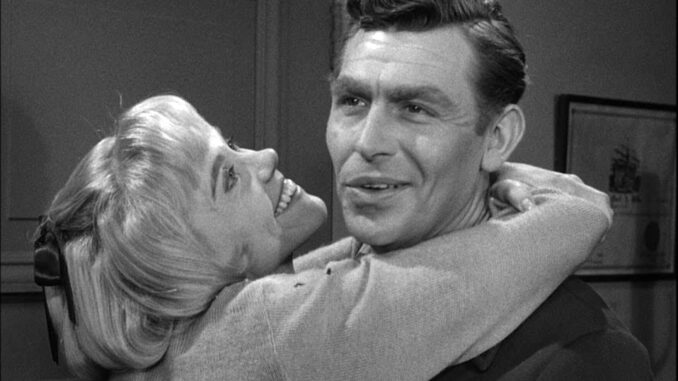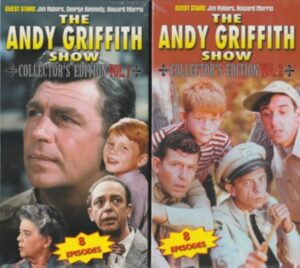
When legendary actor Andy Griffith began working on his eponymous television comedy in 1960, he had a vision for what he wanted for the series.
As the first season progresses, that vision develops. When the show’s producers insisted on introducing a new character to the series, Griffith was dead set against it. And he was proven right.
‘The Andy Griffith Show’ did not reflect the headlines of the day
The now-classic comedy aired from 1960 to 1968, throughout some of the United States’ most trying times. The assassination of President John F. Kennedy in 1963, the Civil Rights movement, and the Vietnam War changed the nation forever. Yet, the town of Mayberry remains untouched by events that thrashed the world about.
“Because the war in Southeast Asia and the racial and student riots of the sixties were running simultaneously against the Griffith Show, it is little wonder that a town like Mayberry was so appealing,” wrote Richard Kelly, author of The Andy Griffith Show.
As Kelly noted, the overarching “character” of this enduring series is the town of Mayberry itself.
“The real hero of The Andy Griffith Show is the town of Mayberry, presided over by the sheriff without a gun, Andy Taylor,” Kelly said. “It is a small world, one that, confirms, is more colorful on simple black-and-white television sets.”

A Deputy was added to ‘The Andy Griffith Show’ early on
On the show’s pilot episode, there was Andy Taylor and his son Opie, but no Deputy Sheriff Barney Fife.
Knotts caught the pilot, which aired on The Danny Thomas Show in 1960, from his home. Newly unemployed after the cancellation of The Steve Allen Show on which he’d been a regular, Knotts reached out to his old pal Griffith for work.
Daniel de Visé wrote in Andy and Don: The Making of a Friendship and a Classic American TV Show, “As Don beheld Andy on [television], ‘the wheels in my brain began to whirl,’” Don recalled. “The part of Sheriff Andy Taylor seemed perfect for Andy. A show like that would be honey to the sponsors, with all its homespun charm. And Don wondered if there might be a place for him in Mayberry.”
Griffith, upon hearing from his future co-star, urged him to immediately contact the show’s producers. They liked what they saw in Knotts, and Barney Fife came to be.
The character Andy Griffith didn’t think would work – and he was right
Speaking to the Television Academy Foundation in 1999, Andy Griffith explained that in the first season, show creator Sheldon Leonard announced that the character of Andy Taylor needed a boss figure.
Griffith was actively involved with approval of jokes, scripts, and characters. While he felt Leonard might have had a point, he didn’t like the direction he was going in. It led to the colleagues’ sole argument.
“The only fight Sheldon and I ever had in my whole acquaintanceship with him was over a story idea,” Griffith said. “He wanted to introduce a character that I knew wasn’t going to work. And it didn’t.”
The character Griffith referred to was the mayor of Mayberry.
“They wanted me to have a boss figure,” he continued. “That’s a good idea for the lead to have a boss figure. Like Lucy’s boss figure was her husband. They wanted to introduce a mayor as the boss figure.”
The show had two actors in the role of town mayor. The first was Dick Elliott who appeared as Mayor Pike in 11 episodes and died in 1961. Parley Baer then took on the role of the easily irked Mayor Stoner. Griffith’s argument against having the mayor as Andy Taylor’s boss was a technical detail, but one he felt could not be ignored.
“I told them before we started, ‘That can’t work because the mayor cannot be the boss to the sheriff,” he explained. “A sheriff is a county official. A mayor is just a little local town official. So, it didn’t work.”
Baer’s final appearance as Mayor Stoner was in the third season episode “Rafe Hollister Sings.” With no fanfare or explanation, the character quietly disappeared from the show.
